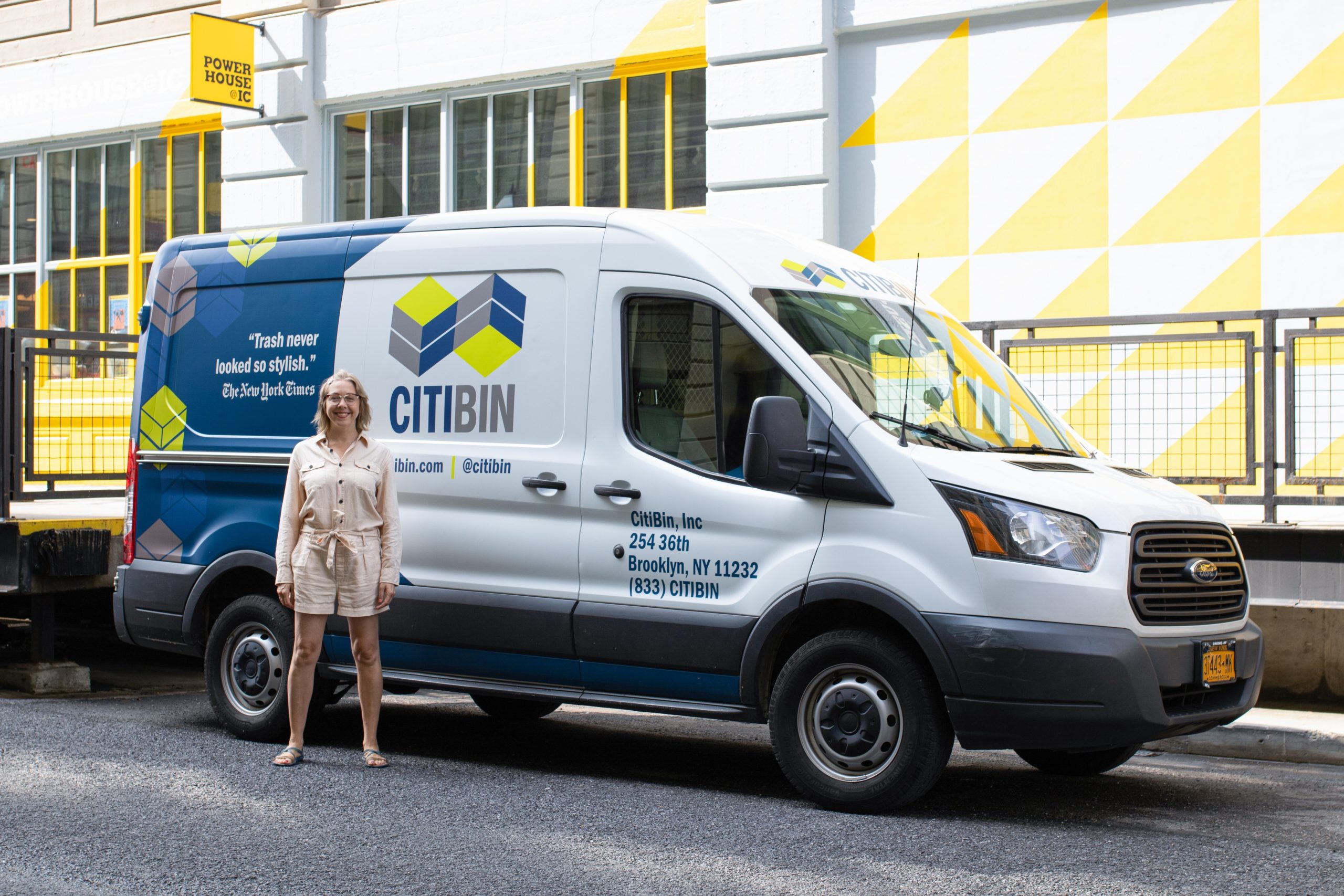It’s Been 10 Years Since I Was Laid Off

My last corporate job was at American Express, where I worked almost exclusively on products and services for small businesses. It was there that I developed a serious case of entrepreneur envy.
By Liz Reisch Picarazzi
It’s now been 10 years since I got laid off from my corporate job. The day it happened, I was stunned, embarrassed, and for a few moments, angry. The next day, I mostly cried. And the following day, I woke up knowing that the pink slip was a gift. I’d actually been preparing for that day.
Still, the layoff was the catalyst I needed to launch my handyman business, an unlikely path for a female marketing executive who had never worked in the trades. In these 10 years, I’ve built and sold New York City’s top woman-owned handyman company, became a manufacturer with no experience in design or metal fabrication, and emerged from the pandemic stronger than ever.
Interestingly, my last corporate job was at American Express, where I worked almost exclusively on products and services for small businesses. It was there that I developed a serious case of entrepreneur envy. I was so inspired by customers’ passion and courage that I would go out of my way to attend every event, roundtable, and town hall geared toward business owners—just to be in their presence. Looking back, it’s clear that what I was really doing was equal parts living vicariously through their experience and taking full advantage of the guidance those events offered. I wanted to BE my customer and couldn’t wait any longer. As it happened, it was my layoff from AmEx’s small business division that enabled me to become a small business owner, for which I am incredibly grateful.
Sometimes I miss the security of a big paycheck with fully loaded benefits. But, temperamentally speaking, I just didn’t fit into a corporate environment. Like many entrepreneurs, I’m impulsive and, I suspect, difficult to manage; I tend to work on things that interest me rather than things that should be a priority. I often sensed I was out of favor but wasn’t sure why, which caused a lot of rumination and self-doubt. During that time I channeled my creativity into home improvement projects, which were therapeutic and revealed how much I enjoy working with my hands. Power washing the deck gave me a feeling of agency that my corporate job didn’t.
My transition from corporate life to entrepreneurial life was relatively smooth. I think there were several reasons for that:
I had been working on my business on the side. When I was laid off, my business plan had been written for two years, the business name for Checklist Home Services and logo were already trademarked, and the URL had been registered with GoDaddy. A few months before being laid off, I even rented half a desk at a co-working space to hold myself accountable to eventually start the business and to be in an entrepreneurial environment. I took each of these steps knowing that getting laid off was possible. If it happened, I didn’t want to have to start from zero.
The business plan was crucial. I enrolled in a business-plan competition at the Brooklyn Public Library. It helped me evaluate the marketplace opportunity and build a service around an unmet customer need. It helped that I was the personification of my target client: a busy professional and mom with a long honey-do list and the means to pay a handyman to conquer the list in a day.
Much of what I learned in the corporate world proved relevant to my new venture. American Express taught me value-based pricing, which is critical for a premium product. Pricing is based on the perceived value to the customer and not just on the cost to the business of creating or delivering the product or service; a Blue Card is free with few benefits, while a Platinum Card is $595 and provides many benefits and a higher level of service. Both of my businesses have been in the premium space, and we sometimes get price objections. But customers can’t get a licensed, insured handyman with a boss making sure the job is done right at Craigslist rates—it’s mathematically impossible. During my days at American Express, I learned to communicate my premium value story and to believe in it.
I maintained important relationships. You never know when a former colleague will come into your orbit again. Many of my early clients were from American Express, including some who I hadn’t vibed with. But they needed handyman services, they trusted me, and they wanted to support me. It goes without saying that you shouldn’t burn bridges, but that’s especially true when you’re starting a business and need supporters (and paying customers!).
I’ve surrounded myself with other business owners. Entrepreneurship is lonely. It just is. When getting started, you need to be around people who are passionate and creative and who know how to get things done. Co-working spaces, Chambers of Commerce, trade shows, and programs like Goldman Sachs’ 10,000 Small Businesses all provide entrepreneur peer groups, which will not only keep you sane but can also can be a source of referrals.
I’ve been asked if I regret not going out on my own earlier. I don’t. I think everything unfolded as it should have. Working a corporate job enabled me to learn a lot, meet many people, have a baby, buy a house, and start a business. Every job working for someone else prepared me to work for myself. I’m so grateful for that pink slip.
Liz Reisch Picarazzi, CEO of Citibin, writes regularly about her entrepreneurial journey.